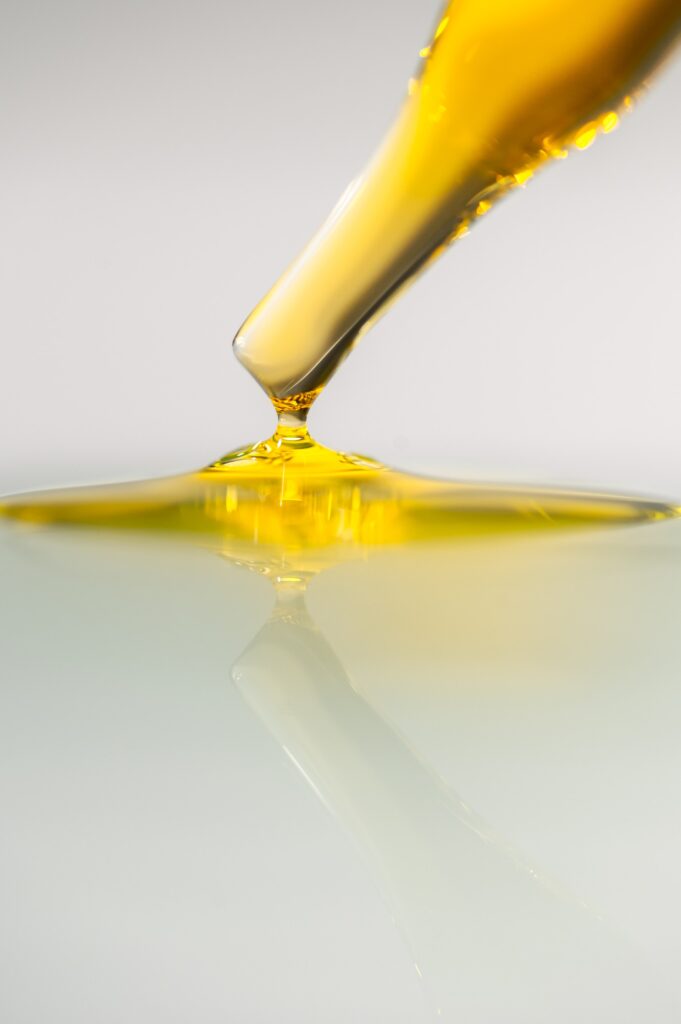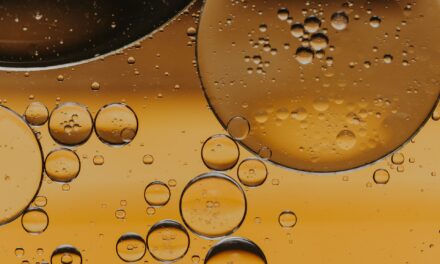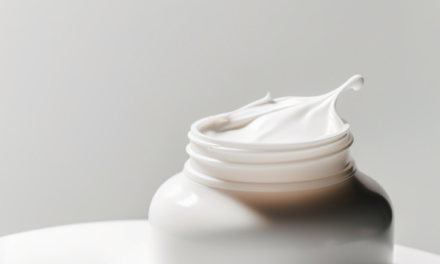Glycerin: The King of Skin Hydration
Glycerin is the unsung hero of skincare; it is one of the most effective ingredients for skin moisturization known to science. It helps hydrate and calm dry, dehydrated, and irritated skin. Furthermore, it is very affordable and has an excellent safety profile; in fact, it is the second most frequently used ingredient in skincare, just after water. But why don’t we hear about it from beauty industry marketers?

Chemically, glycerin is an alcohol–but of a non-drying kind. It was first discovered in 1779. Since then, it has been used for hundreds of different purposes. For example, today in the food industry it serves as a sweetener (yes, glycerin tastes sweet; in fact, its name comes from the Greek word “glykeros,” meaning “sweet”) and as a preservative. It is also used in anti-icing and anti-freezing fluids. In medicine, it is used as a laxative and in cough syrups and throat lozenges.
Positive effects of glycerin on skin have been known for roughly 75 years. Today, glycerin is one of the most widely used ingredients in skincare products, only surpassed by water. The reason glycerin is so popular in skincare is due to its excellent hydration properties. Glycerin has been shown to attract and bond up to 100% of its weight in water. Additionally, due to its chemical structure, it helps keep lipids in the skin barrier liquid, similar to its function in anti-freezing solutions. This aids the skin barrier to be more effective in retaining moisture. Furthermore, glycerin is beneficial in wound healing and can reduce skin irritation, likely by supporting the protective skin barrier.
You might be surprised to know that glycerin is naturally present in the skin. It is synthesized in sebaceous glands and appears to play an important role in the natural hydration of our skin. This could be why glycerin works more effectively to restore good hydration levels in the skin compared to other water-loving chemicals (known as humectants) – especially when applied in high concentrations (10-15%).
Glycerin seems to be more effective for skin hydration than hyaluronic acid, despite the fact that hyaluronic acid molecules can hold more water. Simply being able to bind water is not enough to work as an effective hydrator for our skin. This serves as a good reminder not to fall victim to the advertisements of the constantly popping up “new superior hydrators”; even if they look promising in a lab, the true hydrating effect on skin can only be confirmed through clinical studies (which many new ingredients often lack).
Another great property of glycerin is more economical in nature: it is a very common, inexpensive ingredient. Coupled with the fact that it is also one of the most studied and most effective skin hydrators ever, it means that effective moisturizers can be very, very affordable!
Unfortunately, glycerin has one serious flaw—at least, in the eyes of beauty industry marketers. They consider it to be too common and cheap to be attractive enough for skincare product labels. This is why you hear all about the wonders of hyaluronic acid, marine extracts, flower waters, and fermented essences in skincare marketing, even though glycerin is typically doing the heavy lifting on hydration in the formulas.
All in all, glycerin is your best friend if your skin is dry, dehydrated, sensitive, or you simply want to prevent these conditions from occurring You can confidently choose it over most other “fancier” moisturizing ingredients, doing a favor to both your skin and your wallet.
Sources
- The Effect of Glycerin, Hyaluronic Acid and Silicone Oil on the Hydration, Moisturization and Transepidermal Water Loss in Human Skin https://www.e-ajbc.org/journal/view.php?number=640
Choose your products based on actives
WIMJ Search allows you to select skincare products based on what’s inside. Filter products by actives included, and exclude ingredients you don’t want. Check the concentration of ingredients and potential irritants.
Related Articles
Winter Skin Care: Navigating the Chilly Season with Healthy Skin
Let’s dive into understanding winter skin and how to best care for it.
When Buying Skincare, What Are You Really Paying For?
Ever wondered what’s behind the price tag of your skincare product? Are you just forking out for fancy ingredients and chic packaging? The reality may surprise you. Let’s break it down and see where your money really goes.
The Dark Side of Lightweight Sunscreens
Do lightweight sunscreens provide enough sun protection? Lightweight sunscreen formulas have a higher risk of not providing the sun protection they promise. Learn more in this article.
Azelaic Acid: How It Works and Why You Might Need It In Your Skincare
Azelaic acid may not be the most hyped skincare ingredient, but, frankly speaking, it deserves way more recognition. Despite its underappreciated status, azelaic acid boasts a myriad of evidence-backed benefits, including combating acne, mitigating rosacea, addressing hyperpigmentation, and fighting against free radicals.
Why Has My Skin Become Sensitive All of a Sudden?
Have you recently noticed your skin turning into a battleground of reactions? Is your once-placid complexion now flaring up at your go-to beauty products? You’re not alone. Suddenly sensitive skin can perplex anyone. Here’s a breakdown of why it might be happening and what you can do about it.
Sunflower Seed Oil: The Top Face Oil For Skin Barrier
Struggling to decide which face oil to choose? Sunflower seed oil might not be the most glamorous or exotic of skincare oils, but it could actually be the best for your skin.
Does Bakuchiol Help With Acne?
Discover how Bakuchiol, a plant alternative to retinol, can help combat acne. Dive into the latest research findings, learn the effective concentration and application tips, and uncover why Bakuchiol might be your new go-to for clear, happy skin.
CBD Skincare Benefits and Unknowns
Discover the impressive potential of CBD in skincare and learn about the risks. Our evidence-based exploration covers the CBD potential for treating acne, eczema, psoriasis and combating inflammation.
Thiamidol
Dive into our comprehensive guide to thiamidol, an effective tyrosinase inhibitor with impressive results against hyperpigmentation. Explore its science, evidence, and how to incorporate it into your skincare routine.
Is Petrolatum In Skincare Bad?
Get the facts about petrolatum, a top ingredient in skincare. Learn how this powerful moisturizer soothes, protects, and hydrates the skin. Plus, discover why it’s trending on social media and how it’s safe even for the most sensitive skin areas.




